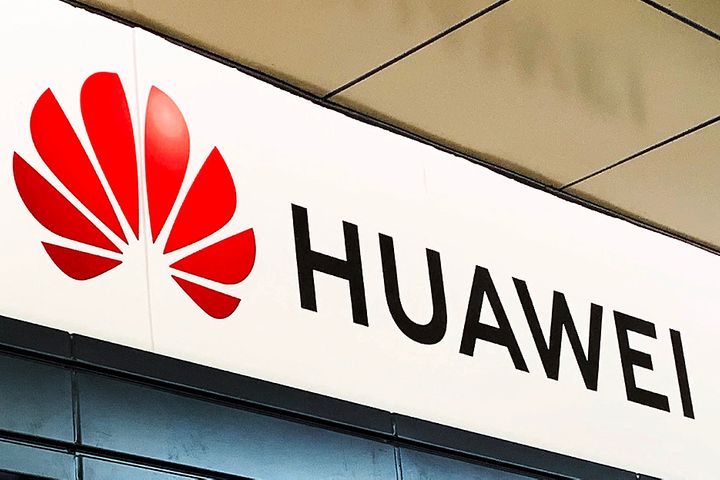 Huawei, Alibaba and Tencent Are Among China's Most Global Firms, Yicai Survey Shows
Huawei, Alibaba and Tencent Are Among China's Most Global Firms, Yicai Survey Shows(Yicai Global) Nov. 15 -- Huawei, Alibaba, Lenovo, Tencent and Ant Financial have topped a list of China's most globalized companies, according to a new ranking by the Yicai Research Institute.
Chinese businesses are becoming increasingly competitive on the world stage and many are focused on becoming multinationals. The top 10 companies all enjoy high public awareness overseas. Many are in next-generation mobile communications, mobile payments, e-commerce, social media and other new technology sectors where China has a leading position.
The internationalization of Chinese companies has entered a new stage, said Lin Chunjie, deputy director of Yicai Research Institute, the research arm of Yicai Media Group, Yicai Global's owner.
The Yicai Research Institute and Yicai Global worked with the Shanghai United Assets and Equity Exchange to develop a rating system that measures and compares the globalization level of Chinese firms and explores suitable approaches for going global.
The Top 10 Globalized Chinese Companies and the Top 50 Globalized Chinese Companies were revealed at the 2019 World Mergers and Acquisitions Summit held in Shanghai on Nov. 9.

Source: Chinese Companies Globalization Research Team
The research team used both objective and subjective analysis to compile the rankings. Five objective indicators were used: industry status, international operations, international development, ESG (environmental, social and corporate governance) and Big Data. The subjective dimension was based on the overall scores given by members of an expert committee.
The results reflect the spillover effect of the Chinese economy into the world from the perspective of micro-subjects, said Qin Shuo, chairman of the expert group and founder of the Chinese Commercial Civilization Research Center and social media group Qin Shuo's Friends.
"Our goal is to demonstrate the internationalization of Chinese companies and provide a reference for decision making," said Yang Yanqing, deputy editor-in-chief of Yicai Media Group and managing director of the Yicai Research Institute.
The expert committee set up an evaluation system based on scientific methodology, she said. The ranking combines objective data and expert opinions ensuring that the companies are in their rightful position on the list.
There have been three phases to economic reform, said Qin. The first was from 1978 to 1992. China set up a socialist market economic system and began to attract overseas funds. Cost-effective Chinese firms, mainly in the manufacturing industries, became part of the global division of labor. By processing raw materials to order, assembling parts for clients, manufacturing according to client samples and being compensated for their work, they started to contribute to the world economy.
The second phase got underway in 1992. Many Chinese companies began to do business overseas. In 2001, China joined the Word Trade Organization and started to export their products as original equipment manufacturers.
China is now in the third of the three phases. After the 18th National Congress in 2012, the country put an emphasis on high-level imports as well as large-scale and high-quality exports to hedge against the influence of unilateralism and any single market. An increasing number of Chinese firms are using global resources and are becoming truly global companies.
If we consider the second phase to be a more China-centered model of globalization, then the third is a more thorough form of globalization mobilizing capital, investment, supply chains, companies and culture worldwide, Qin said.
The Chinese Company Internationalization Report will be released next. It will use data analysis, iconic company globalization cases and research on the overall trend of outbound foreign investment to illuminate the progress Chinese firms are making in going global and to provide a reference point for policymakers.

Source: Chinese Companies Globalization Research Team